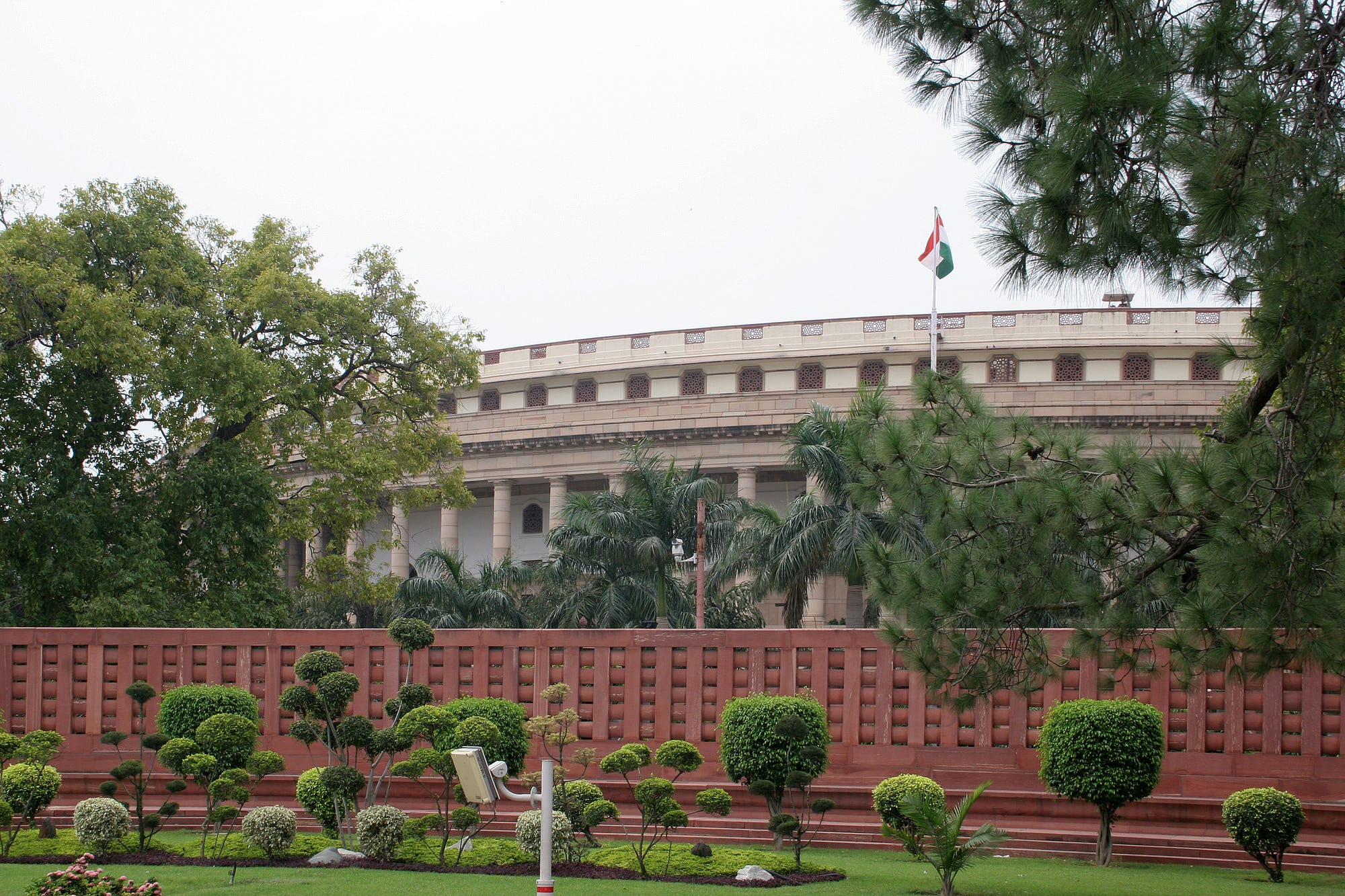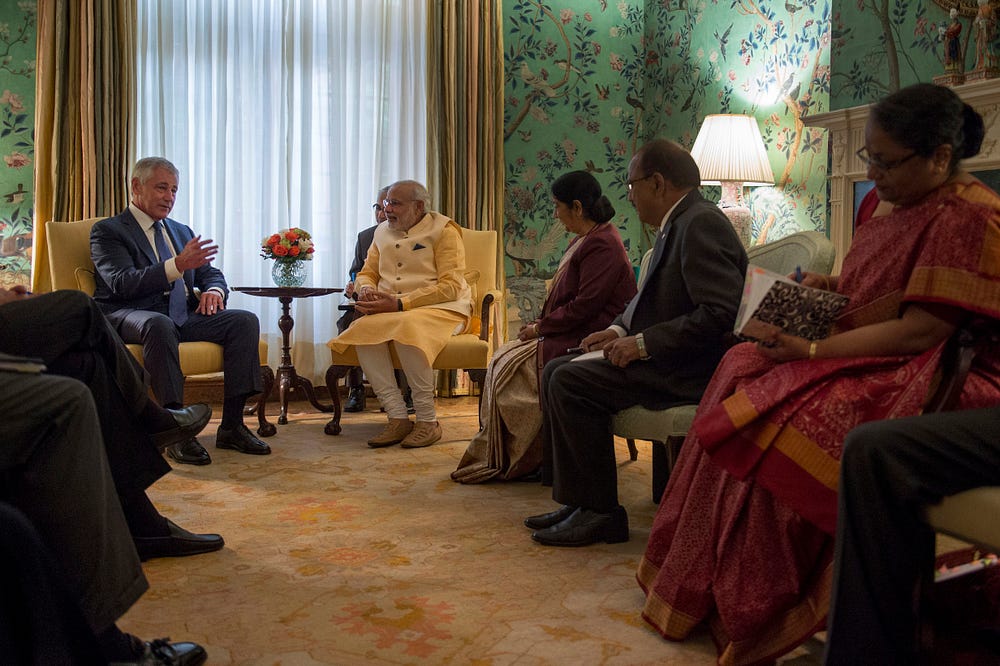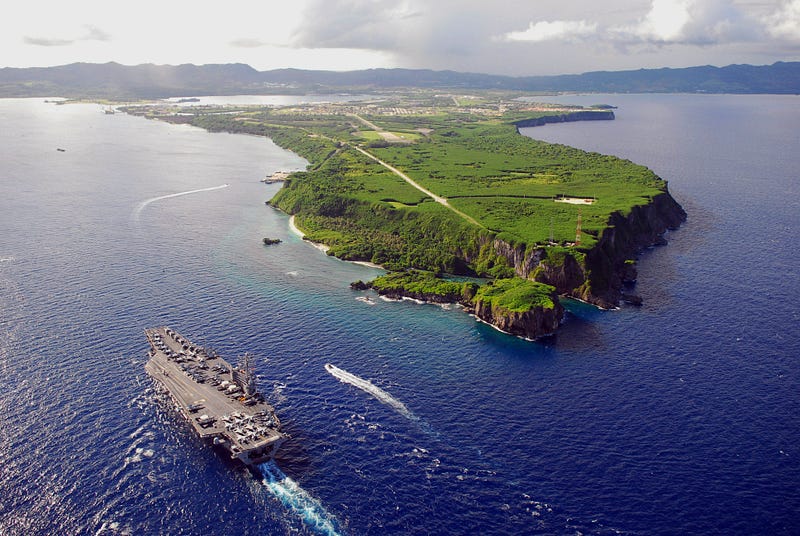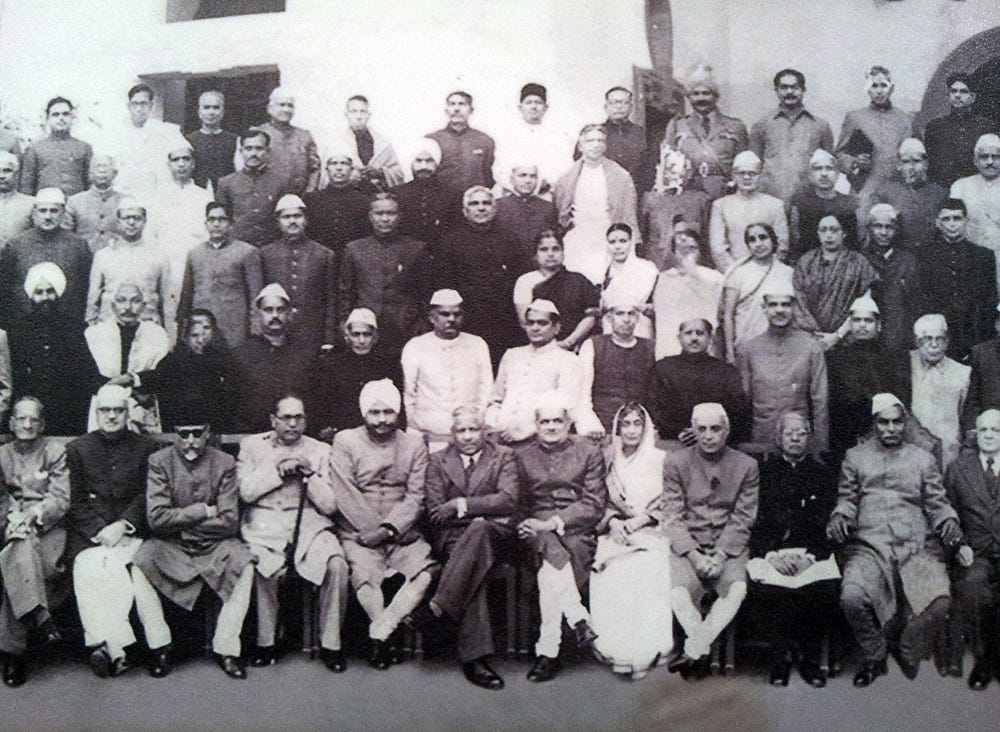 The Indian Constitution is cleverly equipped with a means for India to achieve its grand geopolitical strategy.
The Indian Constitution is cleverly equipped with a means for India to achieve its grand geopolitical strategy.
It has been alleged, time and again, that India doesn’t have a clear strategic goal for herself in the subcontinent, even globally. In rebutting this contention, commentators have overlooked the Indian Constitution, which, like any other country’s constituent document, is the foremost indicator of India’s strategic goal.
The Indian Constitution empowers the Indian government to govern other territories
Traditionally, sovereign states are disallowed from interfering in the affairs of a territory beyond the limits of their own boundaries. Laws made by a sovereign nation’s legislature are, therefore, operable only within the boundaries of such nation.
While the above principle is expressed in Article 245(1) of the Indian Constitution, it is immediately countered by Article 245(2), which states that no law made by Parliament is invalid on the grounds that it has extra territorial application.
Even more surprising is Article 260 — it empowers the union government to undertake the executive, legislative and judicial functions of a territory beyond Indian bounds, by entering into an agreement with such foreign territory.
Such agreement must, however, be in compliance with the prevailing norms pertaining to the exercise of foreign jurisdiction.
Sir Krishnaswamy Ayyar, a member of the Constituent Assembly, introduced what is now Art. 260. Image Source.
It seems that the framers of the Constitution decided to leave Article 260 a latent, potentially emboldening provision.
The Article reveals an important aspect of India’s grand strategy– to unify the subcontinent such that it is seen as one strategic unit — an objective that has become more apparent today than ever before.
The Constituent Assembly debated what is now Article 260 at three sessions (25 July 1947, 28 July 1947, and 25 August 1947).
It is understood from these debates (and from the way the Article was originally phrased) that this provision was intended to facilitate the administration of states that had not acceded to the newly formed Indian union. While this may be so, the version of these Articles that found their way into the final Constitution are conspicuously silent about this context. The current Article 260 also has no mention of ceasing to apply once all the concerned states had ceded to the Indian union.
Why is this such a big deal?
 The framers of the Constitution did not just show cleverness in drafting, but also incredible foresight — bequeathing to India the potential to achieve her grand aspiration.
The framers of the Constitution did not just show cleverness in drafting, but also incredible foresight — bequeathing to India the potential to achieve her grand aspiration.
Prim Minister Modi and Foreign Affairs Minister Sushma Swaraj with the US Secretary General of Defence, Chuck Hagel. Image source.
India’s supposed lack of a strategic culture has been the subject of much debate. The polar differing opinions forget to take into account that the Constitution holds the biggest key to understanding India’s grand goals.
The enigma surrounding the Article’s scope
 The Supreme Court has ruled that Article 260 is only to be invoked in cases when such laws have an impact on or consequences for the people of India or the territory of India. As agreements entered into with other states may not always be within the scrutinizing power of domestic Indian courts, the Supreme Court opined that the Parliament must invoke Article 260 only when there is an impact on Indian territories or the people of India.
The Supreme Court has ruled that Article 260 is only to be invoked in cases when such laws have an impact on or consequences for the people of India or the territory of India. As agreements entered into with other states may not always be within the scrutinizing power of domestic Indian courts, the Supreme Court opined that the Parliament must invoke Article 260 only when there is an impact on Indian territories or the people of India.
It is, in any event, unlikely that India will interfere in an issue in which its territorial or strategic interests are not impacted.
Guam, a non-self governing territory is administered by the US. Image source.
Article 260 may also have been retained in the context of non self-governing territories. The United Nations maintains a list of territories that have not attained self government yet, and are under the control of other sovereign nations. Article 260 may be relevant in the highly unlikely event India must exercise control over a territory that is not sovereign.

No comments:
Post a Comment